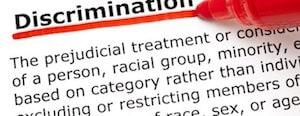State Employment Discrimination Laws and Georgia
October 10, 2016

Many employees, and potential employees experience harassment and discrimination based on their gender, disability, race or sexual orientation. Sometimes the behavior is subtle, and sometimes it is overt. Whatever the situation, it is always inexcusable. Federal laws exist to combat discrimination.
Most federal anti-discrimination laws are enforced by the US Equal Employment Opportunity Commission (EEOC). Discrimination includes adverse decisions (i.e., hiring, firing, or promostion) or harassment on the basis of employees’ race, color, religion, sex, national origin, disability, genetic information, or age, as well as retaliation against individuals for filing discrimination charges. Title VII of the Civil Rights Act 1964 is probably the most well-known anti-discrimination law. Other statutes, including the Equal Pay Act, the Age Discrimination in Employment Act, and the Americans with Disabilities Act also seek to combat discrimination in the workplace. An example of a more modern approach to workplace protections includes the recent amendments to the ADA to cover mental disabilties, and the 2008 Genetic Information Nondiscrimination Act. These statutes prohibit discrimination due to information discovered through genetic testing, such as a genetic disease.
Many states have their own anti-discrimination laws. For example, the New Jersey Law Against Discrimination (LAD) aims to stop employers from discriminating in any employment related area, including in recruitment. The City of Atlanta has also codified protections against discrimination, inlcuding on the basis of sexual orientation. Georgia, however, has no specific anti-discrimination laws. Instead, employees working in Georgia must rely upon the federal EEOC to pursue claims. This means that victims of discrimination must act fast. The law only provides for 180 days within which an employee must report his or her allegations of discrimination. In most cases, waiting longer could forfeit any claims you might have.
If you believe that you are the victim of workplace discrimination, you need to call an attorney who can advise you of your rights and assist you with filing your claim.

